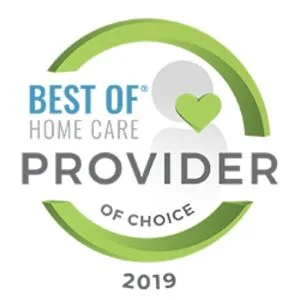Planning Ahead for Care Needs
Planning ahead for aging with your family is crucial for a variety of reasons. First and foremost, it allows you to make informed decisions about your future care and well-being. By discussing and addressing potential health concerns, financial matters, and legal issues in advance, you can ensure that your wishes are respected and that you receive the support you need as you age.
Moreover, involving your family in these discussions fosters open communication and strengthens familial bonds. It allows your loved ones to understand your desires and preferences, reducing the potential for conflicts and uncertainties later on. Planning ahead also provides peace of mind, both for yourself and your family, knowing that you have taken the necessary steps to prepare for the challenges that may arise with aging. So, whether it’s creating a will, considering long-term care options, or discussing end-of-life wishes, taking the time to plan ahead ensures that you can navigate the aging process with confidence and security.
How Can Advance Directives Help?
An advanced directive is a crucial document for aging individuals as it allows them to maintain control over their healthcare decisions even when they may not be able to communicate them directly. As we age, there may come a time when we are unable to make informed medical choices due to illness, injury, or cognitive decline. In such situations, an advanced directive serves as a guiding document that outlines our preferences for medical treatment, end-of-life care, and organ donation.
By creating an advanced directive, individuals can ensure that their wishes regarding life-sustaining measures, pain management, resuscitation, and other medical interventions are known and respected. This document provides peace of mind not only to the individual but also to their loved ones, who may otherwise face difficult decisions without clear guidance. It empowers aging individuals to have a voice in their own care and relieves the burden on family members during challenging times.
By taking the proactive step of creating an advanced directive, individuals can ensure that their values and personal choices are honored, promoting dignity, and facilitating open conversations about end-of-life preferences within their families.
Long Term Care Costs
The costs associated with long-term care, including home care, can fluctuate based on the chosen care setting and the level of care required. Paying for the costs of long-term care can be a significant financial challenge, but there are several strategies and options available to help manage these expenses.
Oftentimes, a blend of payment sources is utilized to meet care expenses. Common sources of payment are:
Personal Saving and Funding
Using personal resources to fund long-term care, such as home care offers flexibility. Tapping into savings, investments, and assets to cover home care allows individuals to tailor their payment strategy to the amount of care to their unique financial situation. While using retirement savings or liquidating assets to pay for in-home care and a hands-on caregiver allow for greater control over the type and amount of care received, you must assess how long those assets will be able to fund the cost of care. Some are able to combine personal resources with insurance or government assistance for a more comprehensive approach to long-term care financing.
Long Term Care Insurance
Long-Term Care Insurance serves as a valuable payment source for covering the expenses associated with long-term care. This specialized insurance provides financial support for various forms of care, including nursing home or assisted living. By investing in Long-Term Care Insurance, individuals can alleviate the financial burden of using personal assets and savings to pay for caregiving. This coverage ensures a dedicated source of funds for specific care needs, offering peace of mind and greater financial security. It is a proactive approach to managing the potential costs of long-term care. You can find many long term care insurance plans that will cover caregiver services through a licensed home care agency.
Medicare and Medicaid
Medicare and Medicaid are government programs, with some individuals qualifying for both and referred to as “dual eligible.”
Medicare
Medicare, while a crucial healthcare resource for many seniors, has limitations when it comes to covering long-term care expenses, like home care. Typically, Medicare primarily covers short-term stays in skilled nursing facilities following a hospital stay, and it may also provide some home health services. However, for extended long-term care needs, such as home care, assisted living or nursing home care, Medicare has limitations and typically doesn’t cover the cost of long-term care. Under traditional Medicare, home care caregiver services are not covered, whereas some Medicare Advantage plans cover some in-home care and caregiver support.Given that Medicare doesn’t pay for long term care, individuals often need to explore additional financial options, such as supplementing with private insurance, personal savings, or other government assistance programs for their long-term care needs.
Medicaid
Medicaid can pay for long-term care, typically for individuals with limited financial resources. This government assistance program provides coverage for various long-term care services, including in-home care. Eligibility is based on income and asset criteria, making it accessible for those who meet the financial requirements. Medicaid acts as a crucial safety net for individuals who may not have alternative means to cover the costs of caregiving services. While its availability and coverage may vary by state, Medicaid serves as a significant support system, ensuring that vulnerable populations have access to essential long-term care services like home care without facing insurmountable financial burdens.
Questions and Answers
Here is a compilation of typical inquiries and concerns encountered by elderly residents of the Pacific Northwest and their families.























